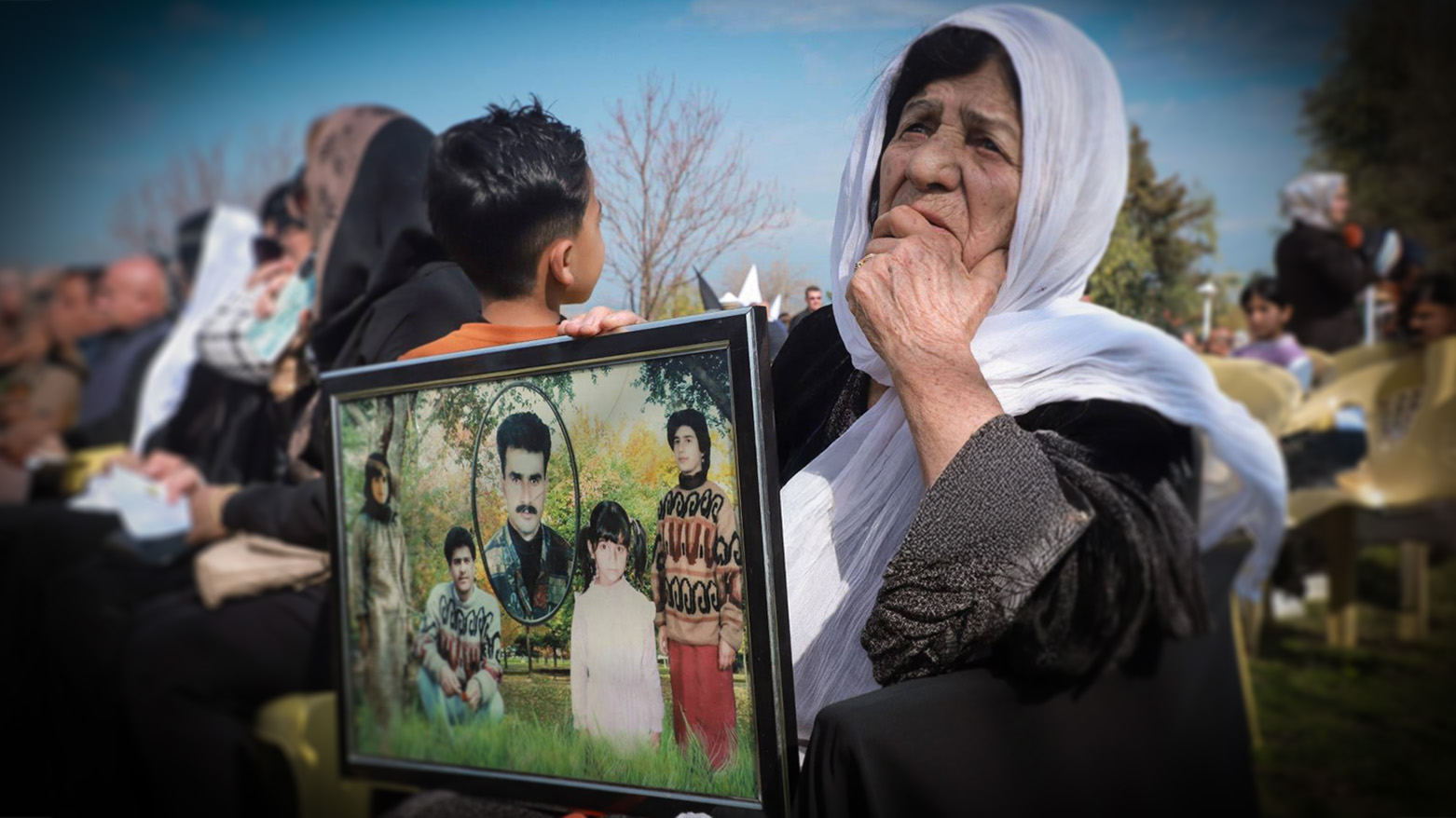'Halabja’s Recognition Stalled by Sectarian Bargaining,' Iraqi MP
When Halabja’s provincial status was proposed, Shia and Sunni lawmakers sought the same for Tal Afar and Fallujah. Shwan Kalari, an Iraqi MP, rejected the comparison, citing Halabja’s unique suffering under Saddam Hussein.

ERBIL (Kurdistan24) – Thirty-seven years after the devastating chemical attack on Halabja, the city remains caught in a web of political maneuvering in Baghdad, as sectarian divisions within Iraq’s parliament continue to obstruct its long-overdue recognition as a province. Despite recent commitments from Shia and Sunni factions to support the legislation, the fate of Halabja’s provincial status remains uncertain.
Shwan Kalari, a member of Iraq’s Council of Representatives, confirmed to Kurdistan24 on Sunday that a delegation led by Nukhsha Nasih, acting governor of Halabja, recently held meetings with key political figures, including Parliament Speaker Mahmoud Mashhaddani and Deputy Speaker Shakhawan Abdullah.
“Following these discussions, all Kurdish factions jointly lobbied various political parties, with Shia, Sunni, and other representatives promising to vote in favor of Halabja’s provincial status in the upcoming session,” Kalari stated.
For years, sectarian disputes between Iraq’s dominant political blocs have derailed efforts to grant Halabja the official recognition it deserves. When the proposal for Halabja’s provincial status was introduced, Shia lawmakers countered by demanding the same status for Tal Afar, while Sunni representatives sought similar recognition for Fallujah.
“It is unconscionable to compare Halabja, with all its sacrifices, to these other cities,” Kalari emphasized, pointing to the unique suffering Halabja endured under Saddam Hussein’s regime.
Despite these ongoing challenges, Kalari expressed optimism, stating, “We are intensifying efforts based on these promises to resolve this issue before the end of the current parliamentary term.”
However, he also issued a stark warning: if the legislation fails to secure enough votes in the upcoming session, the proposal will be terminated, forcing Kurdish leaders to restart the entire process from scratch.
Iraq’s Failure to Fulfill Its Obligations to Halabja
While political infighting continues, Iraq’s historical neglect of Halabja remains a glaring injustice. More than three decades have passed since the city was devastated by the Baath regime’s chemical onslaught, which claimed over 5,000 lives and left more than 10,000 wounded.
Despite a 1991 law passed by the Iraqi parliament mandating financial support and compensation for Halabja’s survivors, these commitments have never been honored.
The law stipulated that each displaced resident who sought refuge in Iran should either receive 1.2 million Iraqi dinars or be granted land—yet to this day, Iraq has failed to comply.
The Kurdistan Regional Government (KRG) has worked diligently to provide services and development for Halabja despite Baghdad’s negligence.
President Masoud Barzani, Prime Minister Masrour Barzani, and Kurdistan Region President Nechirvan Barzani all reiterated this during their statements commemorating the 37th anniversary of the Halabja attack.
President Masoud Barzani, Prime Minister Masrour Barzani, and Kurdistan Region President Nechirvan Barzani all issued statements demanding full recognition of Halabja’s provincial status and financial compensation for survivors.
Earlier in the day, President Masoud Barzani, Prime Minister Masrour Barzani, and Kurdistan Region President Nechirvan Barzani issued statements marking the occasion.
Their messages highlighted the ongoing responsibility of the Iraqi federal government to formally compensate the victims and recognize Halabja as an official province of Iraq.
In his message, released via his official X account on Sunday, President Barzani paid tribute to the thousands who lost their lives in the massacre and emphasized that the pain of Halabja remains deeply ingrained in the collective memory of the Kurdish people.
“The wounds and pain of the Halabja chemical attack will forever remain in the heart and soul of every Kurdish person and will not be forgotten,” President Barzani stated.
“The responsibility for this crime against humanity and its consequences, including compensation for the victims' families, rests on the shoulders of the Iraqi state,” he stated.
Read More: ‘The Iraqi State Bears Full Responsibility for Halabja’s Suffering’, President Barzani
Kurdistan Region’s President Barzani reaffirmed his stance that the people of Halabja and all victims of genocide must receive the compensation and services they deserve. He urged the Iraqi government to meet its legal and moral obligations toward Halabja, fulfill its commitments to the victims, and finalize the long-overdue approval of Halabja’s status as a province.
Read More: KRP Barzani: Halabja’s Pain Endures, Justice Must Be Served
Prime Minister Masrour Barzani reiterated that the KRG considers it a primary duty to enhance services and improve the quality of life for Halabja’s residents. He acknowledged the ongoing challenges faced by the province and assured that further efforts would be made to meet the needs of its people.
Read More: 'Regrettable That Baghdad Has Not Provided Justice for Halabja,' PM Barzani
“In recent years, numerous service projects have been implemented in various sectors in Halabja Province. However, we recognize that Halabja requires additional services. In this regard, we reassure the respected and sacrificing residents of Halabja Province that we will provide better and increased services to the area in the future,” he stated.
Final Vote on Halabja’s Provincial Status Nears
The long-debated bill for Halabja’s provincial status has already completed its first and second readings in the Iraqi parliament, leaving only the final vote remaining.
However, years of broken promises have left many skeptical about Baghdad’s willingness to follow through.
As the Kurdistan Region commemorates the Halabja genocide, its leaders continue to push for justice—not just through recognition of past crimes but by demanding concrete actions from Iraq’s federal government.
For the families who lost loved ones in 1988 and the survivors who still suffer today, the question remains: how much longer will Baghdad delay what should have been delivered decades ago?
Until Halabja receives its rightful recognition and compensation, Iraq’s failure will remain a stain on its national conscience.